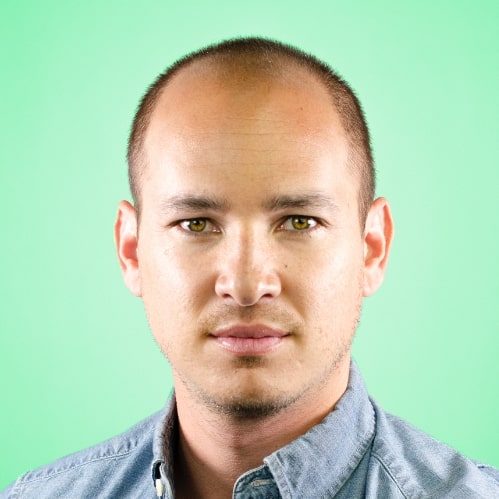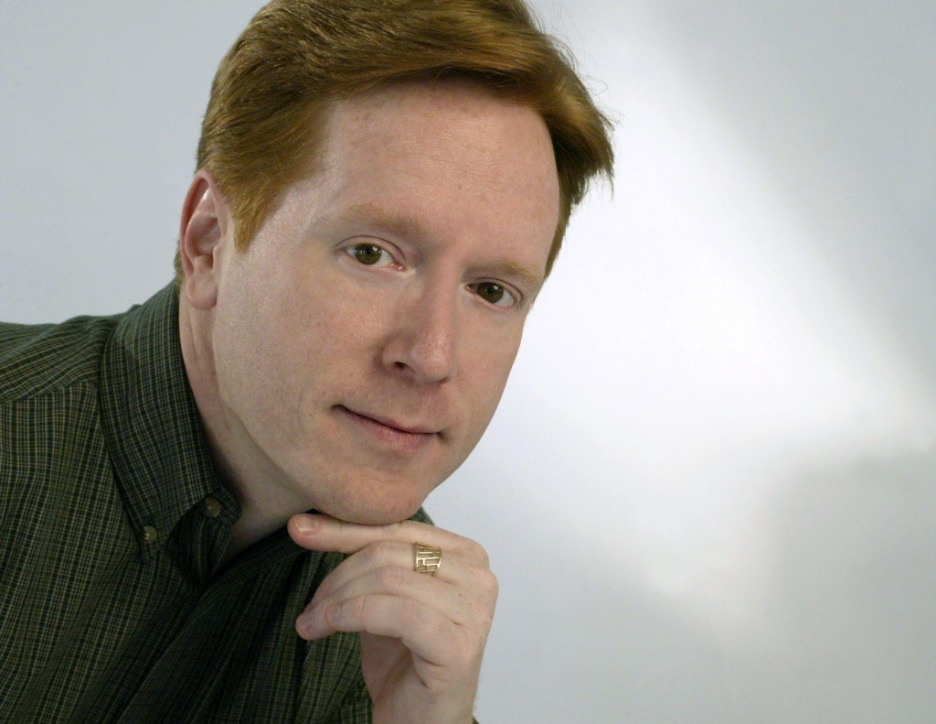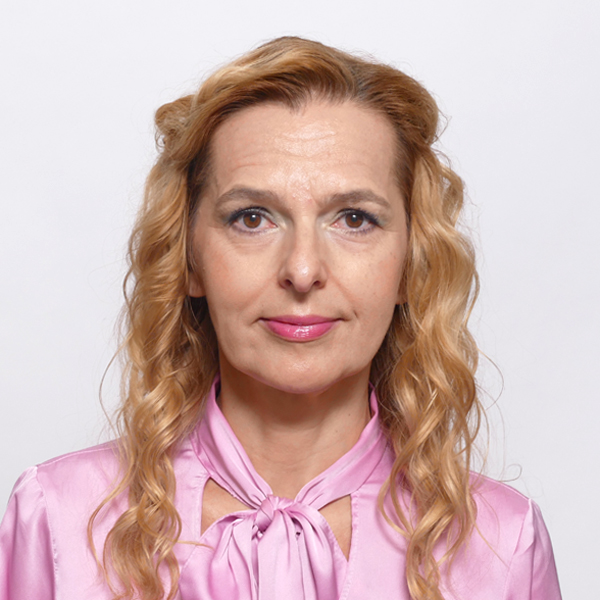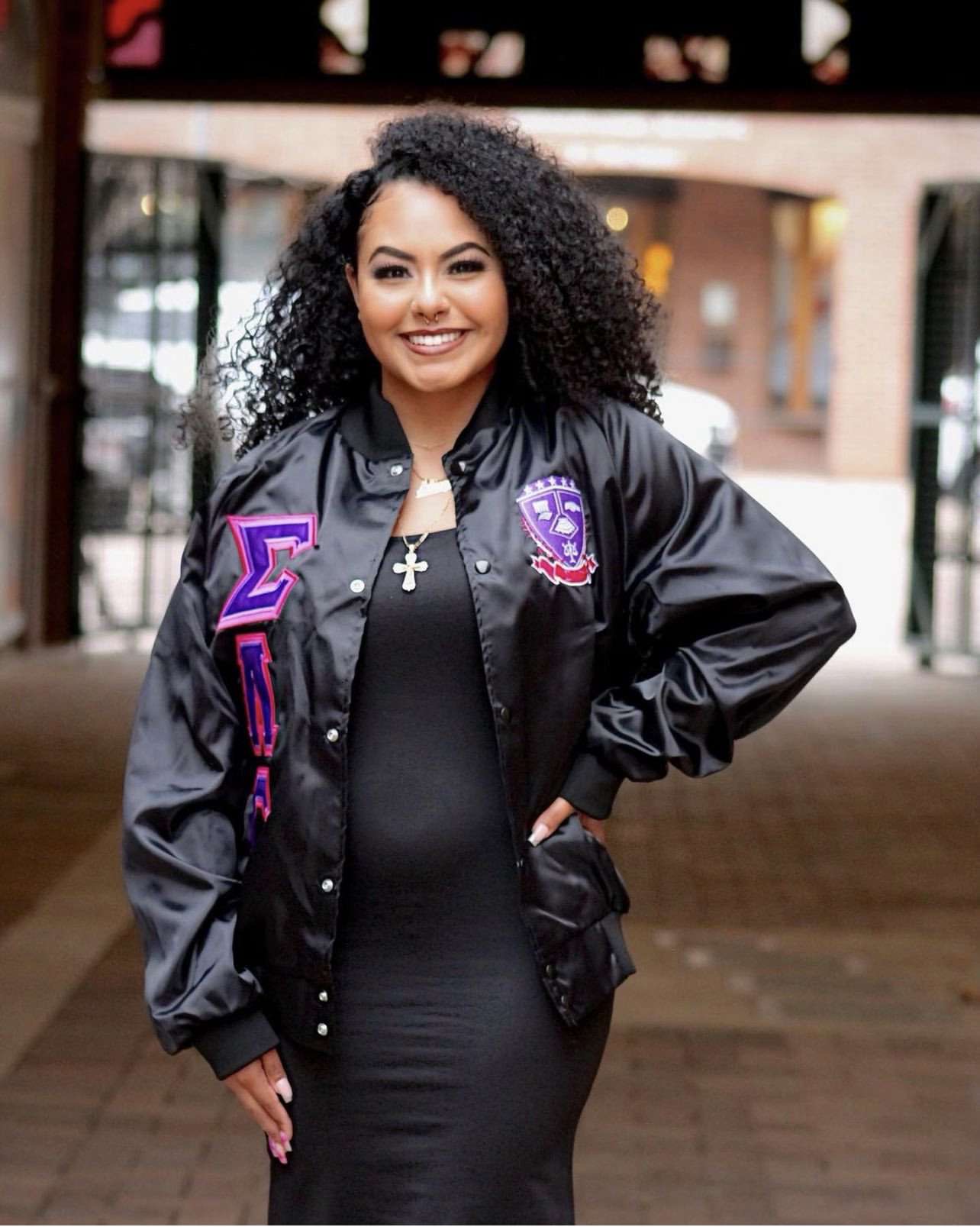
UNC alumna, instructor, and advocate, Dr. Maria Del Mar Chavarria Soto, discusses the importance of being vocal about eating disorders.
My name is Maria Del Mar, known as Maria on campus. I am a former UNC graduate student. I graduated last summer and now I work as adjunct faculty in the sport and exercise science department. And I work at campus recreation as well.
I probably turned like 16 or 17 and there was this place in Costa Rica that made my favorite birthday cakes cause I love frosting, not a cake person. I love frosting. Right? It had the best frosting ever and it was like tradition. We always got our birthday cakes from Choza Dulce and I got that year a birthday cake and I didn't try it. Everyone that attended my party tried it and I had my favorite cake there and I didn't eat it. And what I got was 'congratulations.' Cause that made me so strong. Right? I didn't fall into the temptation of having my favorite freaking birthday cake when I was 16.
Just because a few years prior. Here you are being told different things.
Exactly. Because a couple of years before it was like, 'Oh well you should never eat this cause you should probably be on a diet.' 'Oh you shouldn't probably take this because uh, you used to look so nice and now you just blew it' by going through puberty,
Thanks to hormones.
Exactly. So you get rewarded for all these behaviors and then of course that messes with your head and with your health forever. But you know, a kid.
I'm really happy to talk about these kinds of things because it's, it's not a normal conversation to have. And I think, I think that's also step one is for even people to not... Who, who don't have these discussions, to have them to have a better recognition and to have greater awareness of this. So as I mentioned, you know, right this week is, nah, actually I, how about you introduce it?
Well this week, national eating disorder awareness week, it's a national event where the idea is just to talk about it, what does it look like, what does it feel like to have, whether it's an official diagnose of an eating disorder or just disordered eating behaviors and how that affects your social life, your mental health, your emotional health. So this is the week of just bringing these conversations to the table and talking to people and saying, you know what, this has happened to me and I want to share this with you, hopefully so that you can relate to it or help others not have this experience as well.
And it is national. So that means that again, it'll come around over and over again. But really, theoretically we shouldn't even be having this week at all, this should just be a daily thing and it's a daily struggle, right? But at least we, I know that you have done a lot of efforts and spearheading things on campus, like getting collaborations going on. Can you name just a few, just so like, if people weren't aware.
So on campus, we've created efforts just to bring exactly attention to this issue involving campus recreation. So we have group fitness classes and we've been working with our group fitness instructors to think about how to encourage positive ways to move and how to move your body because it allows you to do all these cool classes that we teach not only because of the reason of aesthetics or because you need to compensate for what you ate, right? There's been a training around the instructors and then the people that come to campus recreation, we have worked with Women's Resource Center to hold consciousness raising sessions and just talk about that. So it's just gathering around and discussing, sharing these stories. Like the ones I've shared with you. We've talked with Office of Health Promotion to also a Nutrition Department on campus, right. But then they can ask questions and get rid of some of the myths around what eating disorders look like or what they feel like or what they are disguised as. So there's a lot of people trying just to bring up this conversation. We've also held sessions group sessions for positive body image, peer led sessions. We had a couple of those last year. So just creating these conversations as part of a normal conversation that doesn't have to be hidden or stigmatized.
I say let's go into some of those hidden stigmas that that kind of happen. What are maybe some myths that that are associated with eating disorders?
Well, I think the first one that is very important is that you have to look a certain way to have eating disorder. So there is a stereotypical look of a very underweight person that has anorexia while I can still have the same behaviors and still be restricting my food intake or engaging in these internal discussions that tell me I don't look good enough or that my body is not okay and not look or not be extremely underweight. And then I don't look like someone that has an eating disorder, right? So if I am not extremely underweight or extremely overweight, people will not typically associate that to an eating disorder, even though I might have the same behaviors or the same mental struggles, right? So there's not a way to look or eating disorders to not look a certain way, right? They don't follow a certain body type. Anyone in any size can be going through different types of eating disorders, whether that's restriction or bingeing or overcompensating with exercise. There's not a way to say by looking at someone that they have or don't have an eating disorder.
What made you really passionate about having some sort of awareness here at this university?
The first thing definitely was that I am an international student. I'm from Costa Rica and there is no awareness at all or no way to ask for help when you're going through these conditions back home. It's very new back there and there wasn't any opportunity to get any sort of treatment or anything. So when I had to go through my struggles in my teenage years and 20s I just pretty much had to do it through online research or just basically suck it up and try to find help on my own. So when I get here on campus and I see that there is opportunity to actually work with different people that are involved and that can bring awareness to this, to all the students, I think this becomes a priority. Like I can help or get involved or volunteer or do whatever it takes to bring awareness to this issue because there are actually resources here to do this, right? There's counseling Senate, there's nutrition services, there's peer education, there's a center for women's and gender equity and there's a lot of opportunity. So it's time to take it and just bring that conversation just like it is brought to some other issues that are just as important.
Do you feel like there's any common myths that you see that are found here in the United States that maybe are not in Costa Rica or vice versa? Or is it pretty similar in what you see? Cause you mentioned like resources and I see that as like a cultural thing. Like you say Costa Rica, but then when you came here you see it at a university. Right? So what, what is it like if we step off the university?
I think that having eating disorders are still seen as a white woman problem. Um, so it's harder also thinking about it's not something that you get if you're from a different ethnicity. So that limits some of the resources available for people of other racial identities, of color, of other gender identities as well. It's been also known more. Now there's more awareness that this also affects people of any gender identity, right? Male, female, non-binary, cisgender, transgender. But I think those, that awareness is greater on campus because of our student population and the efforts that our students have made to be seen in the different student organizations. Right. Once you step off campus, I think it's still very limited to white, female, young that has this problem, right? So the more awareness we create that that's not how it is that anyone can be affected by this illness, then the more awareness there is about the need for resources for all the population. Without mattering. What race, size, ethnicity, or gender you identify with.
Okay. So say it's say it's Christmas time and, and I really like cookies and like you, I really like frosting. I prefer funfetti. And so say I, I eat a bunch, say one one morning, um, and I decide, you know what I had, I had a lot this morning, a lot of sugar and so I decided to skip lunch and, and I just, I'm no, I've already had enough calories for today if I'm counting calories. Would you see that as like a, as a caution sign an eating disorder in any way? Just as a hypothetical situation?
Yeah. So I think that there are so many behaviors in our culture that are part of a greater diet culture, right? That promote these actions. So if you do it once it might be ignored, it might be laughed off just like, Oh well, you know, could it be actually that you are actually very full and you don't want to eat until later? That would be okay if you, because you're listening to your body cues and you're like, Oh, okay, I'm full. I don't feel like having lunch right now. I'll eat later. But when it comes out of a sensation of guilt or of responsibility that now you have to do this because you ate this or this that has been labeled as a treat or as not healthy or as having too much X, Y, orZ , then that's the warning sign. When you start regulating your behaviors out of this guilt or obligation and not because you feel full or satisfied or not, right.
That would be normal bodily reaction awareness. I'm full. I stop eating when I'm full, but the culture around us has told us, Oh, if you have this, then you had enough for the rest of your day.
Therefore I cannot do X, Y, or Z. yeah.
Exactly. That's the other thing that brings up a really great point because it's not only about the food itself, right? An eating disorder is about guilt. It's about shame. It's about body shaming yourself. Others, it's about this mental struggle of navigating every day. So it's not also as simple as to say, well, why don't you just go eat something or why don't you stop eating something? Because there's this mental and emotional component to it. So I think that's another myth in the end. Like it's, Oh, it's only about the food. Then it can go away just as easy as food comes and goes.
Right. And I feel like it's hard to on a college campus when... I mean if we're looking at it in a normal like 18 emerging adulthood, right? 18 to 24 year olds brains are still developing and therefore they're also in this constant like understanding reality and also comparison of who am I versus who are they? And now you are walking through a campus full of people who may or may not, you don't know based on their looks whether they are, you know, having this eating disorder but like, Oh I have a problem now. This comparison can become negative and then toxic and then now it's cyclical. I, it just seems like such a constant struggle.
It's a greater struggle because eating disorders, I heard this from someone else a couple of years ago and they said eating disorders thrive in secrecy. And that lit up like an extra light bulb in my head. Cause absolutely. there's so much shame associated to because it's such a, it's, it's, it's a private moment you with your food, right? But then at the same time, so many people have an opinion about it, right? Then if you're doing something that is not considered or not highly valued by all these others, then then you start feeling ashamed about it. So you're a disorder, and I sometimes talk about the disorder in a third person, right? You are disorder takes on a life of its own. And it starts telling you, Oh, you shouldn't have had that plate of X, Y, and Z. Oh, well what are you going to do now? But it becomes that voice in your own head that needs, that starts dictating how you act. But it's secret. You want still to be normal, you still want to fit in with everyone else on camp. It's just the one to go to the activities you still want it. And then there's this other side of you that's telling you well, but then you shouldn't do this and you shouldn't do that. So how do you navigate all this discovery and all this college experience with that other voice on top of everything? You're already second guessing yourself about everything you do anyway. So that's just adding something else. You're going to go to the dining hall and someone's going to come and give a personal opinion.
An example that I have. I think it was two years ago also right here on our recreation facilities. Some students had come up with a great idea and they were being super nice about giving the rest of the staff free meals and free lunch, right? So they went out of their way, they cooked their food and they served it upstairs in the staff conference room as a way to go support these students, I went up there and had some lunch and I was walking down with my plate of food and another instructor had the audacity to comment on my plate and was like, 'wow, that's so many carbohydrates.' And here I am, a graduate student, a fitness instructor, et cetera. And a fellow colleague just commented on what I have on my plate, right? So things like that add up and if you have this already need to fit in or this doubt or this just struggle with anything else that just is going to add on top of you. And that can definitely lead to really questioning your behaviors and if you need to change them because you were ashamed by them.
Hopefully there's always one friend you can talk to. It's not easy to go completely open and say, 'Hey, I have an eating disorder,' but always try to reach out to someone. Again, this happens to so many people and that's not something you have to go through alone. Going through it alone is just going to make it harder and probably worse. So reaching out always a friend. Of course, resources on campus can be the counseling center, right? You can reach out immediately. Nationally, sometimes it might even feel good to talk to someone that maybe you don't know. So the national eating disorder association has a hotline, it's toll free. It's 1800-931-2237 or you can also text them so they have a crisis support. Maybe just text NEDA to 741741 they'll reply and you can have a text conversation with a trained counselor or an advocate for this.
I think the biggest thing is talk about it. We all know somebody that has gone through this or we have gone through this and unless we start talking about it, we're now gonna have opportunities to find solutions to this problem. Or at least to create the awareness that there needs to be more resources and solutions to this problem. So no shame. Talk about it. Have this conversation, make people uncomfortable talking about it. And it's not something, if you are experiencing this, it's not something you have to go through alone and you don't have to be embarrassed or ashamed of going through this.





